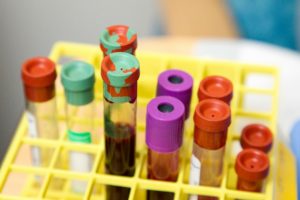A revolutionary new treatment for myeloma, a form of blood cancer, is being rolled out on the NHS in England. This innovative ‘Trojan horse’ therapy delivers chemotherapy drugs directly inside cancer cells, halting the disease for nearly three times longer than current treatments.
What is Myeloma?
Myeloma, or multiple myeloma, affects plasma cells in the bone marrow, which are an essential part of the immune system. The disease can cause bone damage, pain, and fatigue; and while it isn’t currently curable, new therapies aim to extend remission and improve quality of life.

How Does the Trojan Horse Therapy Work?
The therapy, called belantamab mafodotin, combines a chemotherapy drug with an antibody designed to target and bind specifically to cancerous plasma cells.
Think of it like a Trojan horse: once the antibody attaches to the cancer cell, it’s absorbed, and then the chemotherapy drug is released directly inside – killing the cancer cell more efficiently while reducing damage to healthy cells.
Real Patient Impact
Paul Silvester, one of the first to receive this treatment through an early access scheme, described it as “life-changing.” After relapsing post-transplant, Paul quickly went into remission on belantamab mafodotin; and is now able to enjoy life again, including planning trips and family celebrations.
Clinical Evidence and Expert Views
Clinical trials show this therapy can keep myeloma in remission for around three years, compared to just over a year with standard treatments. NHS England’s national clinical director for cancer, Prof Peter Johnson, called the drug’s effect “life-changing.”
Prof Martin Kaiser from the Institute of Cancer Research praised the drug as a “very smart” advancement with fewer side effects than traditional chemotherapy. Though not without some side effects such as dry eyes and blurred vision, the treatment represents a major leap forward.
What Does This Mean for Patients?
Around 33,000 people live with myeloma in the UK. This drug will be available for about 1,500 patients each year when initial therapies fail. The approval follows a cost-effectiveness review by NICE, ensuring that the NHS can provide this cutting-edge treatment sustainably.
Looking Ahead
This therapy is part of a growing class called antibody-drug conjugates, which are being researched for other cancers including breast, stomach, and bowel cancer. Experts hope that such smart drugs will bring us closer to long-term remission and even functional cures.
As Shelagh McKinlay from Myeloma UK said, this development could “transform the lives of thousands.”
Health Minister Karin Smyth, said: “This ground-breaking therapy puts the NHS at the forefront of cancer innovation.”


